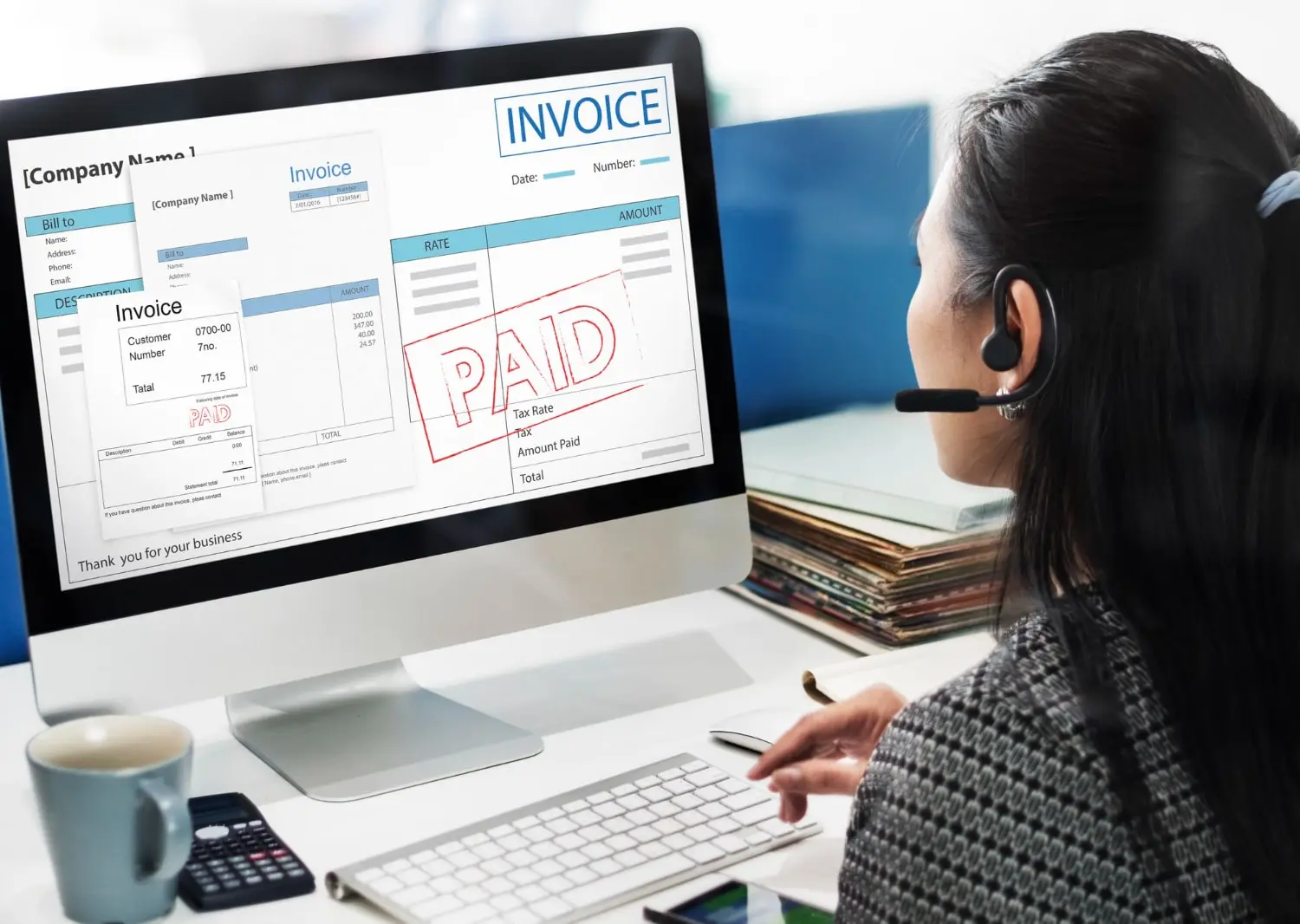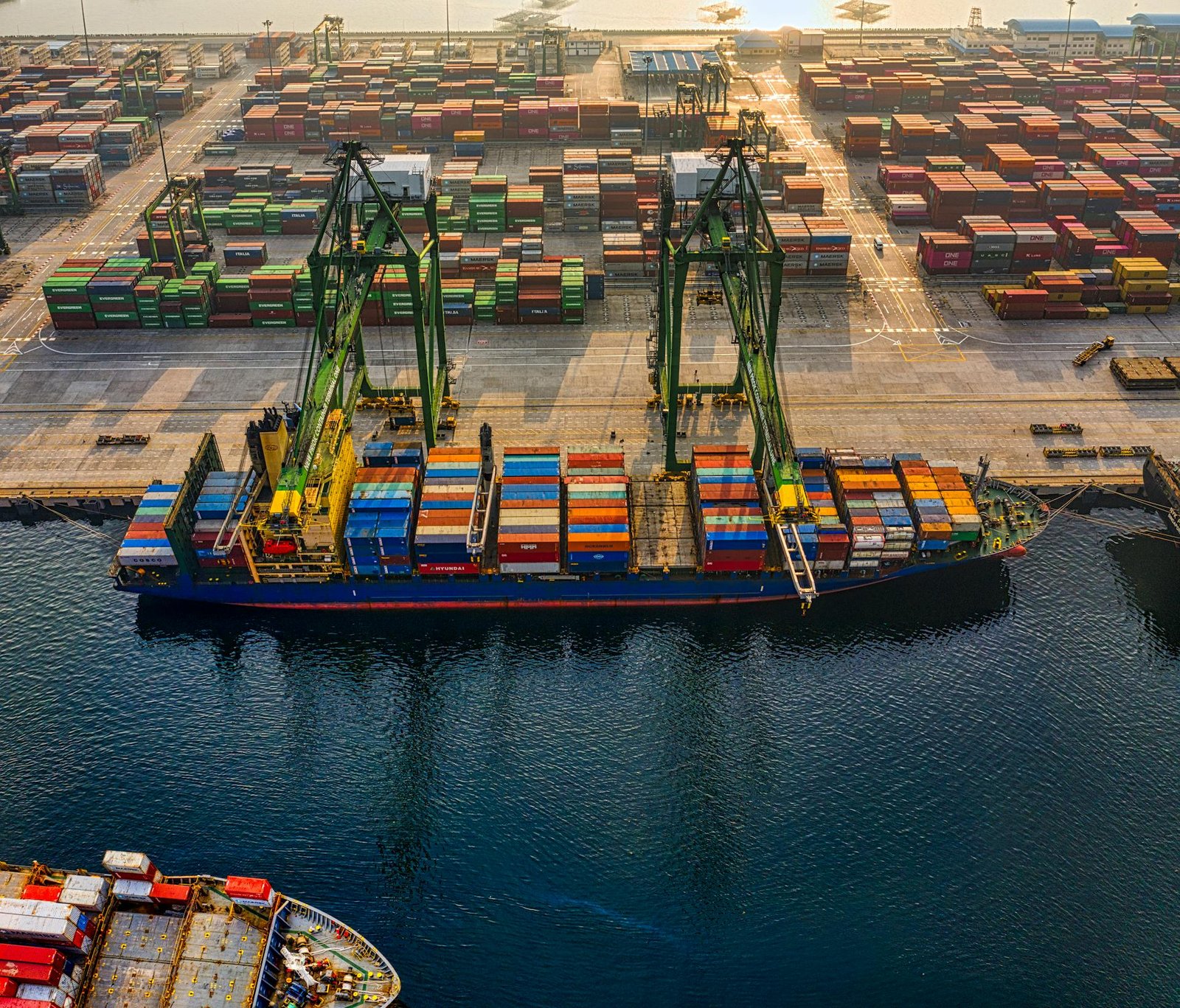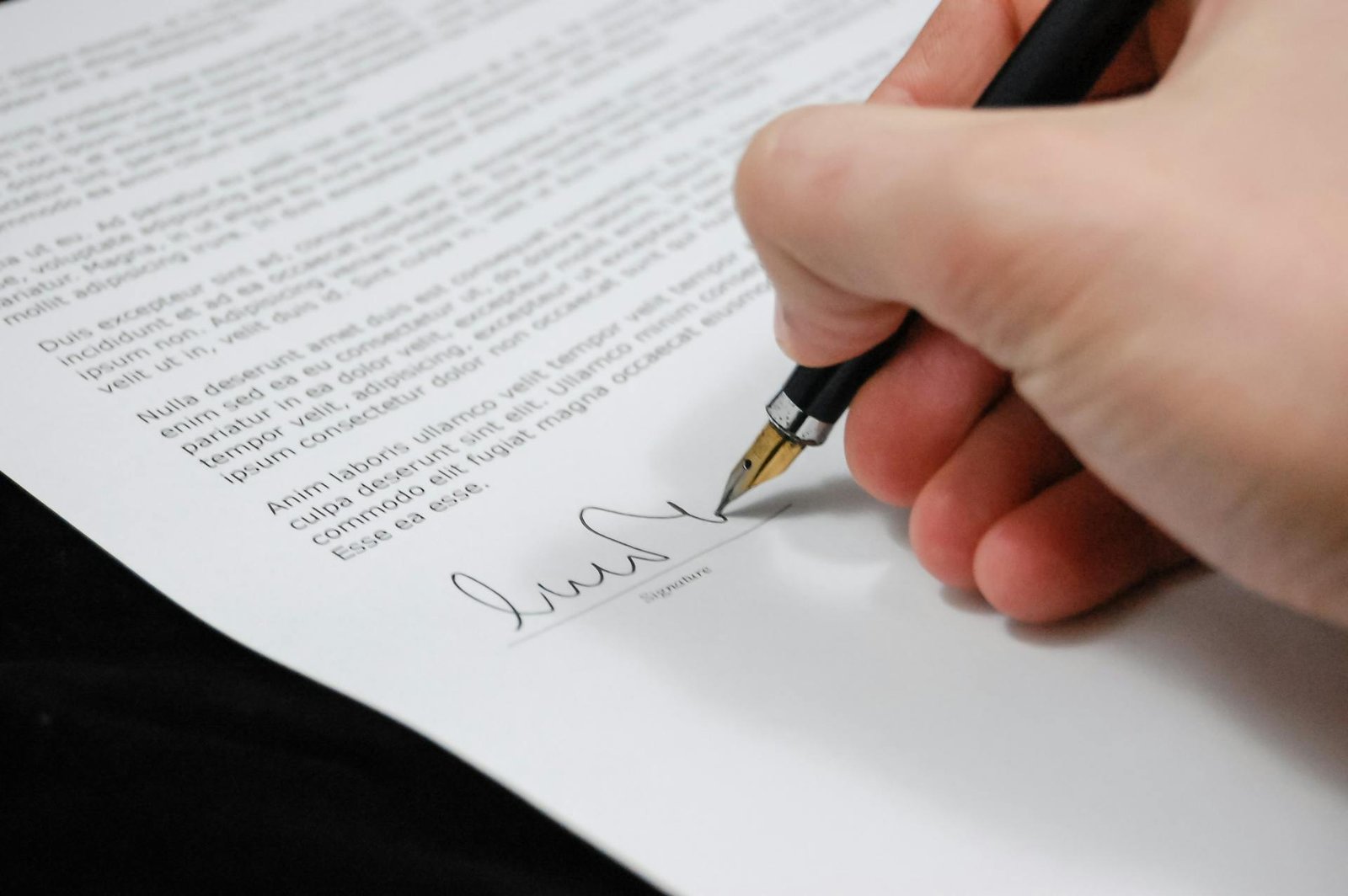Legal Procedure for Commercial Debt Recovery
May 23, 2024

Understanding the legal procedures for commercial debt recovery is crucial in such cases.
We will explain the legal aspects of debt recovery in commercial transactions, guiding businesses to reclaim their owed funds within legal boundaries.
Factors to Consider When Choosing Legal Steps
When recovering commercial debts, businesses must carefully weigh their legal options. Essential factors impacting successful recovery include:
- Evaluating jurisdictional considerations
Understanding the debtor's jurisdiction determines the court's authority over the case. Businesses must assess if legal action aligns with resources and chances of success. Familiarity with local laws is essential for effective navigation.
The chosen jurisdiction significantly affects debt recovery's efficiency and outcome. Thorough research and legal consultation are vital for informed decisions. By carefully evaluating jurisdictional factors, businesses can improve their chances of successful debt recovery while reducing complications.
- Assessing legal costs and timeframes
Businesses should consider legal expenses and timeframes for planning and resource allocation, as delayed processes can affect debt recovery and cash flow. Seeking legal advice and comparing quotes aids in making informed decisions. They must balance cost-effectiveness with the likelihood of recovery.
Careful analysis of legal costs enables informed decisions aligned with financial objectives. Seeking advice from legal experts and comparing quotes can help effectively assess options.
Ultimately, businesses must balance costs and timeframes with the benefits of legal action for debt recovery. Effective planning ensures efficient proceedings and favourable outcomes.
- Importance of contractual agreements
Contractual agreements are the cornerstone of the creditor-debtor relationship, outlining the terms and conditions governing credit transactions. By establishing clear and legally binding terms upfront, contractual agreements provide a framework for resolving disputes and pursuing commercial debt recovery actions in case of non-payment.
These agreements serve as evidence of the debtor's obligation to repay the debt, strengthening the business creditor's position in legal proceedings. Moreover, contractual agreements define both parties' rights and responsibilities, helping mitigate risks and uncertainties associated with debt recovery efforts.
Failure to uphold contractual obligations can result in legal consequences for the debtor, including court judgments and enforcement actions such as asset seizure or bankruptcy proceedings.
Contact Payfor to Prepare Solid Client Agreements
- Importance of cultural and language factors in legal proceedings
Cultural nuances and language barriers affect communication in debt disputes. So, understanding cultural norms and language proficiency enhances proceedings. Legal professionals need cultural sensitivity for cross-cultural cases.
Understanding cultural norms helps businesses navigate challenges in debt recovery negotiations and prevent misunderstandings. Cultural differences can lead to communication breakdowns and hinder dispute resolution progress. Therefore, addressing cultural and language factors proactively enhances legal proceedings and boosts debt recovery success.
International Legal Framework for Commercial Debt Recovery
International debt recovery is complex due to varying legal systems, jurisdictions, and cultural norms. Understanding the laws in each jurisdiction is crucial for initiating recovery proceedings. Plus, international treaties and conventions further complicate cross-border debt recovery.
So, legal experts need international law knowledge to handle global debt recovery. Contracts define terms for resolving disputes between parties from different countries. Arbitration or mediation is often preferred over lengthy litigation in international cases.
Enforcing foreign judgments in international debt recovery is challenging and requires understanding reciprocal enforcement agreements. Collaboration with experienced legal professionals and debt recovery agencies enhances success. Adherence to international legal principles and cooperation between parties is crucial for resolving cross-border debt disputes effectively.
Country-Specific Legal Steps for Commercial Debt Recovery
When it comes to commercial debt recovery, navigating country-specific legal steps is essential for a successful resolution. Each country has its unique legal framework and procedures governing debt collection, making it crucial for businesses to understand and adhere to the jurisdiction's laws where the debt is owed. In the UK, for example, debt recovery typically involves sending letters of demand, issuing court proceedings, and obtaining a County Court Judgment (CCJ) if necessary.
In contrast, other countries may have different legal processes, such as mediation or arbitration, to resolve commercial disputes.
Businesses engaging in cross-border transactions must research and comply with the legal requirements of the debtor's country to ensure effective debt recovery. Failure to follow country-specific legal steps can lead to delays, additional costs, and even legal repercussions for the creditor. Therefore, seeking expert legal advice or partnering with international debt recovery agencies can help businesses navigate the complexities of commercial debt recovery across different jurisdictions.
Contact Us to Return Your Business Debt in 30 Days
Initiating Legal Proceedings
Initiating legal proceedings for commercial debt recovery marks a critical phase in reclaiming owed funds. Before commencing legal action, businesses must exhaust all other avenues for debt resolution, such as negotiation and mediation.
Legal Notice Requirements
In debt recovery, meeting legal notice requirements before formal proceedings is crucial. Usually, this involves sending a demand letter to the debtor detailing the unpaid debt and the consequences of non-payment.
The demand letter formally notifies the debtor of the creditor's intent to pursue legal action if the debt isn't settled. Legal notice requirements vary by jurisdiction and debt type. Non-compliance may hinder or invalidate future legal actions for debt recovery.
Court Action Process
Commercial debt recovery through court action begins with filing a claim, detailing the debt and the basis for the claim. Upon receiving the claim, the court notifies the business debtor, who must respond within a set timeframe. If uncontested, the court may issue a default judgment for the creditor.
Contested cases may proceed to a hearing, where both parties present evidence. The court then decides based on case merits. If ruled in favour of the creditor, the court outlines repayment terms and additional remedies.
After a favourable judgment, the creditor can enforce actions like wage garnishment or asset seizure. Success depends on the debtor's financial situation and available assets.
Business Debt Collection Enforcement Methods
Enforcement methods are vital in commercial debt recovery, enabling creditors to ensure debtors meet their financial obligations.
- One common enforcement method is wage garnishment, wherein a portion of the debtor's wages is withheld to satisfy the debt.
- Another method involves seizing the debtor's assets to recover the outstanding debt.
- Sometimes, creditors may secure a charging order against the debtor's property, limiting its sale or transfer until the debt is cleared.
- Additionally, creditors may choose third-party debt collectors for enforcement, employing tactics like calls, letters, and negotiation to recover funds.
- Another enforcement option is obtaining a writ of execution, allowing bailiffs to seize the debtor's goods and sell them to satisfy the debt.
- Creditors may pursue a freezing injunction, preserving debtor assets until debt resolution.
- Moreover, creditors may pursue insolvency proceedings against the debtor, such as bankruptcy or winding-up petitions, to force them to liquidate assets and repay their debts.
Ultimately, the choice of enforcement method depends on various factors, including the debtor's financial situation, the nature of the debt, and legal considerations. Each enforcement method carries its advantages and risks, requiring careful consideration to ensure the most effective approach to debt recovery.
 Author: Giles Goodman, Founder CEO of Payfor Limited
Author: Giles Goodman, Founder CEO of Payfor Limited
Drawing from his solid experience in commercial debt collection, Giles
offers invaluable expertise in solving claims owed between companies worldwide. Through his writing,
Giles shares insights tailored to business owners, leveraging his wealth of experience to provide practical
guidance and support.
Disclaimer:
This blog post is intended for informational purposes only and should not be construed as legal advice. The information provided in this post is based on general principles and may not apply to specific legal situations. Laws and regulations vary by jurisdiction and can change over time. Readers are advised to seek professional legal counsel before making any decisions based on the information provided in this blog post. Payfor Ltd is not a law firm and does not provide legal services. The company disclaims any liability for actions taken based on the contents of this blog post.
More Blogs & Insights

How to Chase an Overdue Invoice and How to Implement Effective Reminder Systems

What is the AR Process Workflow and Should you Automate it?

Is It Time to Outsource Accounts Receivable? 5 Signs to Look For and a Cost-Benefit Analysis

Accounts Payable vs Accounts Receivable Key Differences Explained

Comprehensive Guide on Debtor Days Calculation: Formula, Examples and Strategies

How to Handle Business Invoice Disputes With Clients?

What is Accounts Receivable and the Equation for Net Accounts Receivable

The Impact of AR Delays and Strategies for Efficient Accounts Receivable for Spanish Businesses

What is DSO: Learn How to Improve Payment Speeds

How Currency Fluctuations Complicate International Debt Collection

Phoenixing vs Insolvency: Knowing the Difference Could Save Your Business Thousands

Why Small Businesses Are the Biggest Victims of Late Payments in 2025

How Payfor Secured €600,000 for a Ukrainian Tech Firm Against a UK Giant

Spotting Compliance Gaps in Debt Collection Before They Cost Your Business

The Dangers of Partnering with a Debt Collection Agency Without Real Legal Backing

How to Overcome Language and Cultural Hurdles in International Debt Collection

Why Too Much Paperwork Hurts Debt Collection Results

What a Good Recovery Rate Really Looks Like in Global Debt Collection Agencies

How Overcomplicated Debt Collection Processes Delay Your Payment

How Poor Debtor Tracing Damages Your Reputation and Delays Recovery

Why Some Debt Collectors Fail After First Contact and How to Ensure Full Recovery

The Problem with One-Size-Fits-All Debt Collection Strategies and How to Get Better Results

Why You Should Be Concerned If Your Debt Collector Doesn’t Give Regular Updates

The Risks of Misidentifying Debtors in International Debt Recovery and How to Prevent Them

How to Avoid the Costly Mistake of Aggressive Debt Recovery Without Pre-Action Steps

Why Paying Upfront to Other Debt Collectors Often Leads to Bigger Losses

How US Investors Can Recover Money from Failed International Joint Ventures

The Best Way for American Exporters to Collect from Foreign Buyers

How US Businesses Can Recover International Debts Without Expanding Their Legal Team

Recovering Debts After a Business Acquisition or Merger

Understanding the Commercial Debt Collection Struggles Faced by Startups

How Payfor Recovered a $780,000 Hollywood Merchandising Dispute

How an Indian Software Developer Got Paid with Help from Payfor
Payfor was able to collect the outstanding debt by negotiating a resolution between the two companies.

What is Corporate Recovery? How to Recover a Six-Figure Corporate Debt
A Comprehensive Guide to Collecting £100k-£250k Unpaid Invoices from International Businesses

How a Ukrainian Tech Company Secured Payment from a Saudi Debtor
The Ukrainian company had done everything they needed...

Why Most Commercial Debts Remain Unpaid Despite Hiring a Lawyer

How a Portuguese Recruitment Firm Recovered 80% of Its Outstanding Invoices
A recruitment company based in Portugal was owed money from clients in the UK, Portugal and Germany.

$750,000 Production Loan Default Recovered Through Payfor Legal Recovery

How Payfor Recovered a $450,000 Location & Equipment Rental Dispute for a Hollywood Client

The Psychology Behind Legal Recovery and Why It Works

What Legal Recovery Looks Like with Payfor on Your Side

When Debt Collection Fails and Legal Action Becomes the Only Way Forward

Hollywood Insurance Claim Dispute Worth $510,000 Resolved with Payfor’s Help

Securing Payment for Unpaid Post-Production Services Worth $430,000

How We Overcome Frustrating Debt Collections
A Welsh SaaS business was owed money by a London financial services company.

What is Global Debt Collection?
Global debt collection is when a collection agency or company actively tries to collect debts from debtors across international borders.

Commercial Debt Collection Laws in the UK: A Comprehensive Guide
Understanding the legal framework governing commercial debt collection is paramount for both creditors seeking restitution and debtors aiming to protect their rights.

How to Collect Debt From a Business That Repeatedly Refuses to Pay What They Owe
At the start of the Covid Pandemic in the UK early 2020, companies started owing each other money left, right and centre…

How Payfor Helped a Hollywood Studio Recover $612,000 in Sponsorship Fees

How Payfor Helped Resolve a $750,000 Box Office Revenue Sharing Dispute in Hollywood

How Payfor Helped Resolve a High-Value Hollywood IP Infringement Case

How Payfor Resolved a $620,000 Dispute on a Hollywood Distribution Agreement

How Payfor Recovered a $750,000 Talent Payment for a Hollywood Actor

Can You Recover Debt from a Defunct Company? What to Know About Insolvency and Liquidation

What Happens After a Court Judgment? Debt Enforcement Stages Explained

Resolving a $190,000 Licensing Dispute Between Two Record Labels

How Payfor Helped A Record Label Recover Six-Figure Copyright Infringement Damages

How Payfor Helped Recover Over $400,000 in Unpaid Royalties for a New York Record Label

How Payfor Supports Energy Sector Clients in Recovering High-Value Debts

Additional Actions Payfor Pursues Without Further Notice

What Payfor Does If a Debtor Doesn’t Pay Within 5 Days

Legal Recovery for Ad Agencies Left Hanging After Production

Why Delaying Legal Action Can Weaken Your Case

The Dangers of Legal Action for Debtors

Introducing Our Enhanced 30-Day Chase Campaign

How Payfor Recovered $500,000 from an Elusive Debtor in UAE

The $1 Million Debt That Payfor Recovered When Everyone Else Had Given Up

The Three Essential Stages of Effective Debt Collection

Why Debtors Respond to Us When They Ignore Everyone Else

Why Debt Recovery in the Construction Industry Is So Complex—And How to Overcome It

Is Debt Recovery Always Aggressive? Debunking the Myth

£100,000 Recovered from a French Startup by UK-Based Technology Company

The True Cost of Unpaid Invoices for UK Businesses

$120,000 Recovered from a California-Based Tech Giant for an Israeli Software Firm

When Is a Debt Truly Unrecoverable? Knowing When to Write It Off

Top 5 Debtor Excuses We Hear All the Time—And How We Handle Them Professionally

When to Escalate: Signs It’s Time to Hire a Debt Collection Agency

The Psychology of a Debtor: Why They Delay—and How to Get Paid Faster

How Debt Collection Agencies Are Evolving in a Tech-Driven World

Why Businesses Worldwide Trust PayFor with Their Debt Recovery

What Businesses Are the Most Vulnerable to Debt?

7 Skills Every Successful Debt Collector Must Have

How Debt Recovery Agencies Work Within Regulatory Frameworks

What to Expect When Hiring a Debt Collection Agency

A Costly Lesson in Market Vulnerability

How We Recovered a SaaS Subscription Debt Without Litigation

How Persistence Secured a $36K Software Debt Recovery

When a Strong Contract Isn’t Enough: Navigating a Disputed £35K Recruitment Debt

Helping a Global IT Company Recover £37K from a Venture-Backed Biotech Firm

Turning a 600-Day Debt Stalemate into a Strategic Settlement

Leveraging Legal Pressure in a Recruitment Fee Dispute Against a New Jersey Real Estate Development Company

Cloud Infrastructure Billing Dispute between a Global Server Platform and a Ukrainian IT Company

Strategic Recovery in a Cross-Border Financial Dispute between a Ukranian App Developers and a Dublin-based Piracy Protection Platform

Effective Debt Recovery for a London-Based IT Firm

Successful Debt Recovery for a Silicon Valley Software Company

How to Effectively Manage Overdue Payments with Debt Collection Agency

How No Win No Fee Arrangement Works in Debt Collection

Balancing Recovery and Customer Retention in Business Debt Collection

The Evolution of Commercial Debt Collection Practices

Legal Considerations in Commercial Debt Collection Cases

Cereal Entrepreneurs: Mastering the B2B Debt Collection Game

4 Successful B2B Debt Collection Cases

How Commercial Debt Collection Services Help Large Corporations

Top 5 Challenges in B2B Debt Collection and How to Overcome Them

How to Collect Debt From a Business That Repeatedly Refuses to Pay What They Owe?
Coping with a business that repeatedly refuses to pay its debts can significantly impact your cash flow and hinder your company's growth.

Out-of-Court Settlements for Ukrainian Businesses Commercial Debt Collection
As enterprises strive to maintain cash flow and financial stability, resolving commercial debt disputes efficiently becomes crucial for Ukrainian businesses.
How to Track Down a Debtor That’s Gone Missing?
Tracking down a missing debtor can be challenging, but several effective methods can increase your chances of success.

How the Letter Before Action Works in Commercial Debt Collection
One of the most effective tools at a creditor's disposal is the letter before action (LBA). This formal notice is a precursor to legal proceedings and offers a final opportunity for debtors to settle their obligations without court intervention.

Steps to Take Before Engaging a Debt Collection Agency
Hiring a commercial debt collection agency can be immensely helpful for businesses facing challenges in recovering outstanding debts. Professional agencies possess the expertise and resources necessary to efficiently manage business debt recovery.

How to Deal With Reactions to Your Commercial Debt Demand Letter?
Learn how to effectively manage and respond to a range of reactions received following the issuance of your commercial debt demand letter.
Business Debt Collection Best Practices for Israeli Tech Businesses
As the Israeli tech industry thrives on continuous development and investment, managing outstanding debts efficiently becomes crucial to ensure that financial stability is not compromised. Implementing best practices for debt collection tailored to each firm's unique needs can significantly mitigate these risks.

What is Commercial Litigation?
Defined as the legal process of resolving business-related conflicts through the court system, commercial litigation covers many issues - breach of contract, business torts, shareholder disputes, and intellectual property disagreements.

Commercial Debt Collection for Small and Medium Enterprises (SMEs) in Ukraine
Small and medium enterprises (SMEs) play a crucial role in Ukraine’s economic growth and job creation. However, many SMEs grapple with cash flow challenges due to market fluctuations.

The Role of Professional Debt Collection Agencies for Ukrainian Businesses
In Ukraine's dynamic business scene, managing outstanding business debts is challenging and can strain resources.

Best Strategies for Commercial Debt Management: Advice From an Expert
In today's competitive landscape, businesses must navigate complex financial relationships while balancing cash flow and creditor obligations.

How to Recognise Early Warning Signs of Business Debtors?
Recognising the early signs of a potential debtor is crucial for maintaining a business's financial health. Many companies encounter clients who, despite initial promises, fail to uphold their payment obligations, which can significantly impact cash flow and operational stability.

How Can You Recover a Debt in the US When You Are in Portugal?
Distance, legal disparities, and practical hurdles create complexities for Portuguese businesses seeking to recover commercial debts from businesses in the United States.

Commercial Debt Collection Laws for Ukrainian Businesses
Ukrainian businesses frequently grapple with managing financial obligations and recovering debts. The legal framework for commercial debt collection is vital for maintaining economic stability and fair market practices.

What to Do When a Client Cancels a Business Agreement?
When a client cancels a deal, it can significantly disrupt your business operations, impacting both your financial stability and strategic planning.

International Commercial Debt Collection Laws Explained
International debt collection involves pursuing debts from debtors in different countries - a challenge heightened by diverse legal systems, cultures, and language barriers.

What Happens If You Lose a Commercial Debt Collection Lawsuit?
Unpaid debts can pose significant challenges to business financial stability. When traditional methods fail to resolve these outstanding dues, companies may take legal action, such as a commercial debt collection lawsuit.

When to Use a Commercial Debt Collector?
Businesses often face challenges in recovering payments from clients or customers when managing outstanding debts.

How Long Can You Legally Be Chased for a Commercial Debt in the UK?
In the UK, the statute of limitations for pursuing a commercial debt is typically six years, starting from the last acknowledgment or payment date.

What is Commercial Debt Factoring in Business?
Companies often seek innovative solutions for cash flow management and financial challenges, such as commercial debt factoring, where accounts receivable are sold to a third-party factor at a discount.

How to Recover a Commercial Debt in the US When You Are in Israel?
If you are an Israeli business seeking to recover a commercial debt owed to you in the United States, it's essential to understand the intricacies and procedures involved in such a pursuit.

Legal Procedure for Commercial Debt Recovery
Commercial debt recovery can be a complex and challenging process for businesses. From unpaid invoices to overdue payments, encountering debtors unwilling to settle outstanding dues is a common predicament.

How Do Businesses Benefit From Offshore Jurisdictions?
Offshore jurisdictions like Switzerland and the Cayman Islands are a prevalent strategy for companies engaged in commercial debt collection or aiming to enhance their financial and tax planning initiatives.

How Do You Write a Demand Letter for Commercial Debt?
Unpaid business debts can be challenging for commerce businesses. When traditional debt collection methods fail, turning to legal recourse becomes necessary.

How to Avoid Late Payments in B2B Transactions?
Late payments pose a significant challenge for businesses, impacting cash flow, profitability, and overall financial stability.

Commercial Debt Statistics: Facts and Numbers
Commercial debt plays a vital role in business finances, acting as both a driver for growth and a potential indicator of a company's financial stability.

Why Payfor Is Different From Other B2B Collection Agencies?
Unlike other agencies, Payfor prides itself on its unique approach to commercial debt recovery, blending industry expertise with a commitment to client satisfaction.

How to Calculate Business Debt: A Comprehensive Guide
Understanding and accurately calculating business debt is essential for maintaining financial stability and making informed decisions.

How to Recover a Debt in the US When You Are in Egypt?
Given the geographical and legal barriers, recovering a debt in the United States while residing in Egypt can present a formidable challenge.

What are Commercial Debt Collection Challenges for Startups?
Startups often encounter unique hurdles when it comes to recovering owed funds. From establishing effective credit policies to navigating legal complexities, startups must navigate myriad obstacles to ensure timely payments and maintain financial stability.

Negotiation Tactics in Debt Recovery: The Psychology of Persuasion.
Commercial debt recovery is an essential, yet intricate, facet of business operations that requires an amalgamation of skills—from legal understanding to business acumen.

How to Recover Debt in the US When You're in Ukraine?
Navigating the complexities of debt recovery across international borders presents unique challenges for businesses, particularly when seeking to recover debts owed in the United States while operating from Ukraine.

Is Legal Recovery the Answer When Your Business is Owed Money Across Borders?
When your business faces the challenge of recovering owed money from companies operating across international borders, legal recovery emerges as a strategic imperative.

How Do Commercial Debt Collection Recovery Campaigns Work?
Commercial debt collection recovery campaigns are intricate processes designed to retrieve outstanding debts owed by businesses to creditors.

Why Jurisdiction Is the Most Critical Factor in Commercial Debt Collection?
When it comes to commercial debt collection, one question often trumps all others: "What is the key most important factor when chasing a debt?"

What is the Difference Between Arbitration and Issuing Legal Proceedings/Litigation?
The choice between arbitration and litigation is a pivotal decision that can shape the course of dispute resolution.

What is Amicable Recovery?
Amicable Recovery is a consensual and cooperative debt collection method that aims to settle outstanding payments without resorting to judicial measures. This process often commences with a courteous reminder, followed by mutually beneficial negotiations, in an effort to secure payment.

What is Jurisdiction in Global B2B Debt Collection?
Jurisdiction determines the legal authority and framework within which commercial debt collection efforts can be pursued across international borders.

How to Determine if a Debtor is Solvent Enough to Repay Debt: An Expert Guide
In the intricate world of commercial debt collection, one of the most challenging yet imperative tasks is assessing the solvency of a debtor.

Small Business Debt Collection: A 7 Point Guide
This guide covers seven key points, ranging from understanding legal frameworks to negotiating payment plans. It equips small business owners with the knowledge and tools necessary to successfully pursue outstanding debts.

What is Commercial Debt Collection?
Commercial debt collection is when a third-party agency recovers unpaid debts owed by one company to another. The recovery agency contacts the company owing the debt requiring it to pay the debt.

What Are Commercial Debt Collection Challenges for US Companies?
Commercial debt collection presents myriad challenges for US businesses, including complex jurisdictions and contractual elements.

How Much Debt Should a Business Have?
Striking the right balance between business debt and equity is paramount for maintaining financial health and sustaining growth.

Commercial Debt Collection Challenges and Solutions for Ukrainian Businesses
In today's economic climate, Ukrainian companies encounter many obstacles when recovering commercial debts.

How is Bad Debt Defined in Business: A Short Explanation
The term "bad debt" holds significant importance for businesses and can often signal trouble for enterprises of varying sizes.

What is a Creditor in Business?
A creditor is a party that has provided goods, services, or monetary resources to a business on credit, expecting repayment within an agreed timeframe.

What is a Commercial Debt for Business?
Commercial debt is the amount of money one business entity owes to another for goods or services provided on credit terms.

What Should Businesses Expect From a Modern-Day Debt Recovery Agency?
Modern debt recovery firms are redefining industry standards by offering strategic financial solutions alongside traditional collection efforts.

How to Safeguard Your Business: Expert Tips for Choosing Reliable B2B Partners and Clients
In today's rapidly evolving business landscape, establishing robust B2B partnerships and securing dependable clients are pivotal to achieving growth.

What Are Commercial Debt Collection Challenges and Solutions for UK Companies?
Navigating the complexities of commercial debt recovery in the UK presents many challenges that demand a strategic understanding and adept handling.

A Comprehensive Guide to Commercial Debt Collection for AI Companies
As AI businesses often market their technology globally, cross-border trade is a notable challenge they face.

How Does Commercial Debt Collection Work for Recruitment Companies?
As recruitment agencies strive to connect employers with suitable candidates, the issue of outstanding payments can become a common challenge for them.

What are Debt Collection Agencies: Their Role in Financial Recovery
The debt collector is mainly an agency creditors hire to recover money owed by businesses that have failed to make timely payments on their debts.

Commercial Debt Collection Issues for IT and Software Development Companies
The billing models, project timelines, and evolving client requirements create an environment where debt recovery becomes a complex and nuanced process for IT and Software development companies.

Business Debt Collection Etiquette: How to Preserve B2B Relationships
In the ever-evolving landscape of business, maintaining positive relationships with other companies is crucial for long-term success. However, as businesses engage in commercial transactions, they may encounter instances where debtors are not forthcoming, acting in bad faith, or having a hidden agenda.

What is a Debtor in Business: Essential Guide
Commercial debtors, in essence, refer to entities that owe money to a business for goods or services provided. This financial relationship forms a critical component of the broader commercial ecosystem, shaping a business's cash flow dynamics and overall financial health.

What to Do if a Company Owes You Money: Resolving Unsettled Debts
In a business relationship, there might be situations where a company owes you money, and the path to resolution may not always be clear. When faced with this challenge, it's crucial to approach the situation with a level head and a strategic plan.






